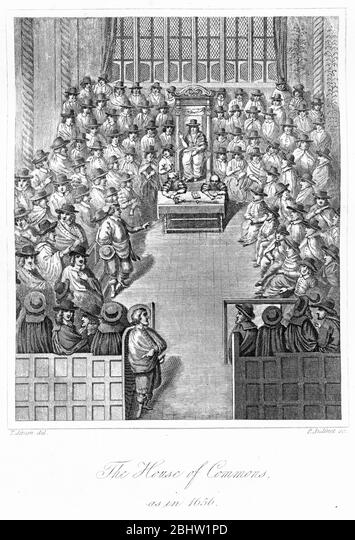1649 Abolition of the House of Lords
The long-simmering quarrel between much of England’s political class and the monarchs of the new Stuart dynasty boiled over into civil war in the 1640s. The result of this Parliament-Crown conflict was the execution of King Charles I and an attempt to institute a form of republican government. On March 19, 1649, the lower house of the bicameral Parliament, the House of Commons representing the towns and shires of the country, voted to abolish the upper chamber, the House of Lords, where the heads of the noble families and England’s bishops sat.

Though a number of aristocrats had supported Parliament during the Civil War, the House of Lords was a far less radical body than the Commons. In order to counter the conservatism of the Lords, it was suggested that the upper house be abolished but the members of it allowed to sit in a unicameral body. This was resisted out of a fear that the influence of the nobility would sway the Commons unduly. Some suggested that the Lords might serve as a kind of court or a consultative body but pressure grew to do away with the House of Lords altogether. At first, the highly-influential Oliver Cromwell was opposed, calling the idea madness at a time when unity was required but he was outvoted. Th existence of a powerful chamber of aristocrats in a country which had killed its king and done away with monarchy seemed to serve no purpose and the following bill was passed:
The Commons of England assembled in Parliament, finding by too long experience, that the House of Lords is useless and dangerous to the People of England to be continued, have thought fit to Ordain and Enact, and be it Ordained and Enacted by this present Parliament, and by the Authority of the same, That from henceforth the House of Lords in Parliament, shall be and is hereby wholly abolished and taken away; And that the Lords shall from henceforth not meet or sit in the said House called The Lords House, or in any other House or Place whatsoever, as a House of Lords; nor shall Sit, Vote, Advise, Adjudge, or Determine of any matter or thing whatsoever, as a House of Lords in Parliament: Nevertheless it is hereby Declared, That neither such Lords as have demeaned themselves with Honor, Courage and Fidelity to the Commonwealth, nor their Posterities who shall continue so, shall be excluded from the Publique Councils of the Nation, but shall be admitted thereunto, and have their Free Vote in Parliament, if they shall be thereunto elected, as other persons of Interest elected and qualified thereunto, ought to have.
It is little remembered but the republican government of the 1650s reconstituted an upper chamber in 1657. Called the “Other House”, it was meant to be an assembly of nominated life (as opposed to hereditary) peers and to serve as a check on the restive Commons. It disappeared with the restoration of the Stuart monarchy in 1660.